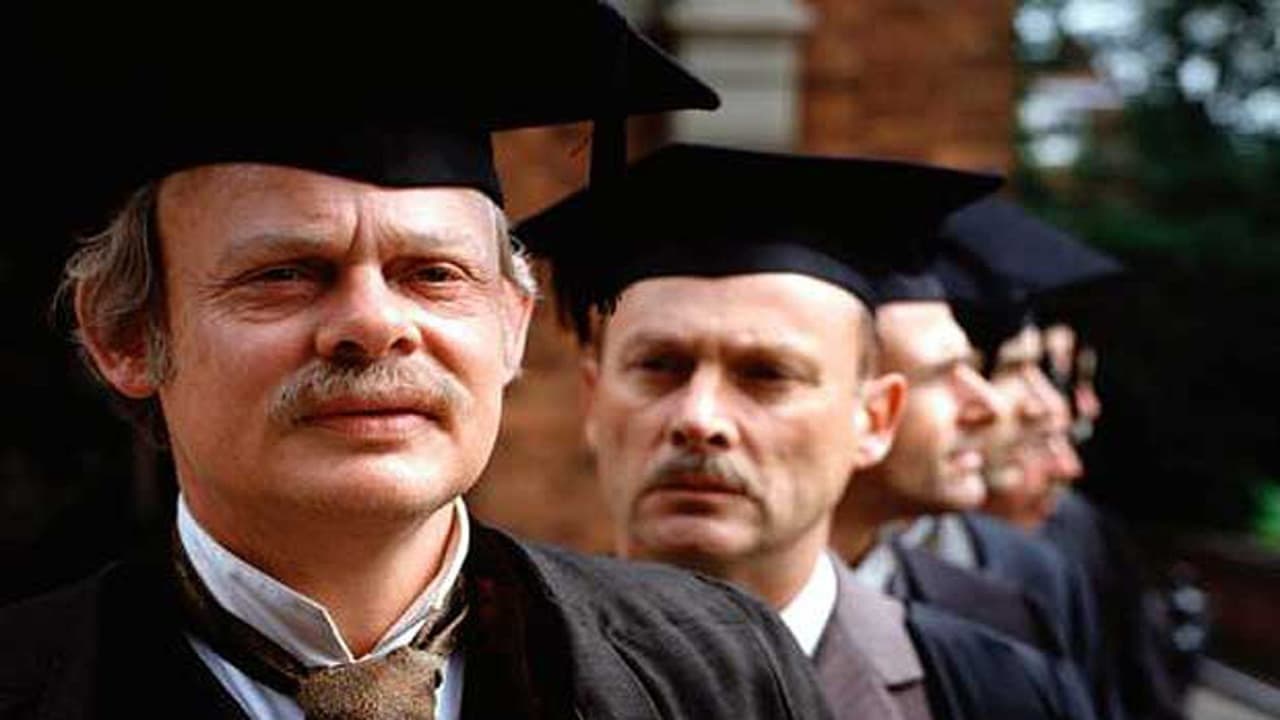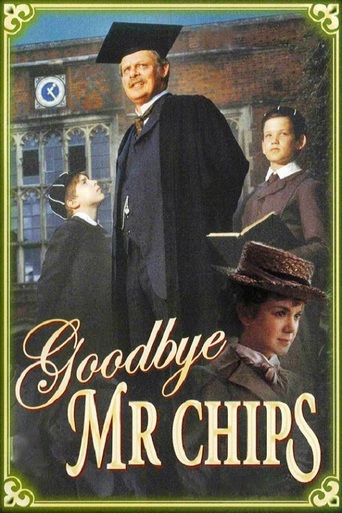AniInterview
Sorry, this movie sucks
Inclubabu
Plot so thin, it passes unnoticed.
Solidrariol
Am I Missing Something?
filippaberry84
I think this is a new genre that they're all sort of working their way through it and haven't got all the kinks worked out yet but it's a genre that works for me.
TheLittleSongbird
Considering how brilliant, regardless of how sentimental it is, the 1939 Robert Donat film was, this 2002 TV adaptation had a lot to live up to. What a wonderful surprise! I loved this version from beginning to end, it isn't as good as the Donat version, but as a TV drama it is almost perfect. The production values are excellent, elegant in style and gorgeous to look at. The music had a lovely sense of whimsy about it, and gave a gentle and relaxing feel. There were parts that made me laugh, such as the classroom scenes, but others that were very poignant, the ending especially. The scripting was mature and subtle and also I loved the simplicity of the story. The acting was exceptional from all involved. Martin Clunes is brilliant as Chips, maybe just lacking Donat's superiority, but it was still a performance of subtlety and made me smile and cry. Not to mention that his transition from an idealistic 20-something year old teacher to a wiser and gentler headmaster was very believable. Victoria Hamilton is positively luminous as Kathie, Patrick Malahide is excellent as Ralston and the boy actors also give surprisingly good performances if careful not to overshadow Clunes in what I consider one of his better performances. Of course the drama doesn't quite explore what made Chips such a great and inspirational teacher, yet it has a greater emphasis on the progressive aspects of education, that I found most appreciative. Overall, I loved it, just a joy to watch in general. 9/10 Bethany Cox
duralet
The overriding triumph of Goodbye Mr Chips was undoubtedly the performance of Tom Szekeres. His powerhouse performance was a joy to behold and kept me watching the show over and over again.I would love to meet Tom and shake his hand for what is certainly the most heartfelt, compelling and overall spectacular example of acting that has been witnessed in the 20th (and 21st) century. He outshone Martin Clunes in almost every possible way and, even though Martin is a fine actor apparently, I believe Tom Szekeres is head and shoulders above the rest.In conclusion, Tom Szekeres is the man. The one and only. There can be no comparisons and no alternatives. Goodbye Mr Chips was good, but Tom Szekeres was better.
Philby-3
Robert Donat won an Oscar for best actor in the 1939 film version of this story and set a hard mark to beat in his gentle portrayal of a dedicated English public (meaning private) school teacher. There was an unsuccessful musical version with Peter O'Toole in 1969 and a TV miniseries with Roy Marsden in 1984 which disappeared without trace. But James Hilton's novella (of only 17,000 words) tells a good story and Martin Clunes, a remarkably versatile actor, with the aid of some great make-up rises to the challenge of portraying the same character convincingly over 50 years or so.The early scenes have an idyllic feel to them, reflecting Hilton's nostalgia for the Victorian age. Things become nastier at the onset of the First World War with a new headmaster (played by the excellent Patrick Malahide) who wants to teach "practical" subjects and attract the nouveau riche, while cutting out scholarships for the poor. Chips, the shy but strong-minded Latin master, with the aid of the board of governors (most of whom he has taught), has little trouble in ousting this upstart, and, though in his sixties, he becomes the headmaster. But his triumph is blighted in two respects; his much loved wife (Victoria Hamilton) is not around to share it, having died in childbirth many years previously, and the steadily rising toll from the battlefields of France cuts a swath through the school's younger alumni. In fact it is a pretty sombre story, but Chips consoles himself with the thought that he has been a father to hundreds of boys.All of us have been to school (with the exception of Mrs Chips who was "privately educated") and most of us can remember at least one teacher who had a positive effect, even in a harsh environment. Perhaps we feel if we were taught by someone with Mr Chip's values we might have been better people. His is a story with a powerful resonance not confined to the draughty corridors of English boys' schools Apart from Martin Clunes, there are a number of other good performances including that of Conleth Hill as Max Staefel, the avuncular German master, John Wood as the old headmaster, and from several of the pupils. Victoria Hamilton lights up the screen for the short time she is on it and Patrick Malahide as the new headmaster gets us to dislike him from his opening lines.The bullying and fagging are exposed of course, and the superiority of Chip's more gentle disciplinary methods demonstrated. Hilton, whose own father was a headmaster, was not anti-public school but clearly thought the system could do with some reform. As if to show their support, both Harrow and Winchester College provided shooting locations for the film.
axsmashcrushallthree
I have now viewed three of the four versions of this James Hilton story. It's a wonderful story, and two superb actors (Robert Donat and Peter O'Toole) have previously played the role of Mr. Chipping (whose first name is again not mentioned this version).Martin Clunes' effort in the role does not quite match the towering performances of the other two actors, but he's very good, and the other aspects of the production work as well as the '39 version and definitely better than the particularly flawed '69 film. Here, the logic and coherence of the story flow extremely well within less than two hours. The makeup accurately reflects the changing time period of the story exceptionally well. There is a greater emphasis on the progressive aspects of education than in the other two versions, but this emphasis contributes appropriately to the story line. The cast is uniformly excellent. Overall, a bit less sentimental than the '39 version, which I appreciated. A worthwhile remake, and definitely worth your time - whether you've seen the other versions or not. I'd give it about 8.5 out of 10.

